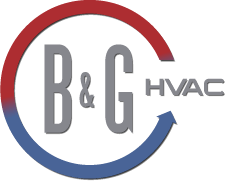
Big changes are on the horizon for the heating and cooling business! Cooling systems shifting from R-410a to newer refrigerants like R-454B refrigerant and R-32 refrigerant will be arriving in 2025. These new coolants are developed to be better for the environment and meet new regulations about global warming. But what does that mean for your current HVAC system and upcoming services?
This shift will decrease the environmental effect of our air conditioning systems. Starting with 2025, new AC systems will employ new class of refrigerants that more closely match with climate goals. If you're thinking about getting an AC replacement soon, this is the opportune time to investigate how these changes can affect your home's comfort.
Why Exactly Is R-410a Being Phased Out?
For a long time, R-410a was the go-to refrigerant for residential air conditioners because of its efficiency. But research showed that R-410a still contributes to global warming. As a result, the Environmental Protection Agency (EPA) implemented a strategy back in 2021. The industry will steadily phase out R-410a to replace it with refrigerants that are better for the environment.
The HVAC industry has implemented changes like this before. When the industry phased out R-22 (commonly called Freon) to R-410a, property owners like you had to follow suit. And in the same way, this change will impact how systems are designed as well as the optimal methods for HVAC maintenance. Both property owners and HVAC technicians should prepare for these new refrigerants if they want to keep experiencing the safest, most cost-effective cooling possible.
New HVAC Refrigerants Replacing R-410a?
The coming refrigerants belong to the new "A2L" classification and encompass the newest R-454B refrigerant and R-32 refrigerant coolants. They're engineered to provide the same efficient cooling while substantially decreasing their global warming potential (GWP) compared to R-410a.
R-454B refrigerant is expected to be especially useful due to its GWP being around 78% lower than R-410a. While R-454B refrigerant is actually more flammable than R-410a, improvements to system manufacturing and maintenance practices will ensure servicing is just as safe to perform. Additionally, contemporary cooling systems using R-454B refrigerant are considerably more energy efficient, leading to big savings on energy bills over time, especially if you maintain your system with routine HVAC maintenance.
This switch isn't only about substituting the refrigerant—it affects the whole HVAC system because the properties of R-454B refrigerant make it not suitable for use in older systems. Ultimately, every residence and business using R-410a will need to transition to one of the new systems.
R-410a Replacement: What Do I Need to Do to Switch to New HVAC Refrigerants?
Changing to the new refrigerants will not be as simple as substituting what's used in your home's HVAC system. That's because the different properties of R-454B refrigerant and R-32 refrigerant make existing R-410a systems incompatible. But don't worry—you can still use your current R-410a system for now. Just remember that as time goes on, the cost of repairs and tune-ups will rise as R-410a becomes less available.
Anticipating the changes is the most effective way to stay on top of things. If your AC system is already getting old, this is the perfect time to think about upgrading to a newer model that uses the new R-454B refrigerant. Plus, the team here at B & G HVAC can help you in upgrading with flexible options for HVAC replacement financing.
Which HVAC Refrigerant Is in My Air Conditioner?
Not sure which refrigerant your AC system utilizes? In general, you can easily find this information by examining the label on your outdoor unit. This label indicates the type of refrigerant, the model number and various other specifications about your cooling system.
But if you have difficulty reading the label or don't have your user manual, don't worry! You can always call one of the professional technicians at B & G HVAC to assist you in determining this information. Get all the details you need by reaching out at 641-316-3360.


